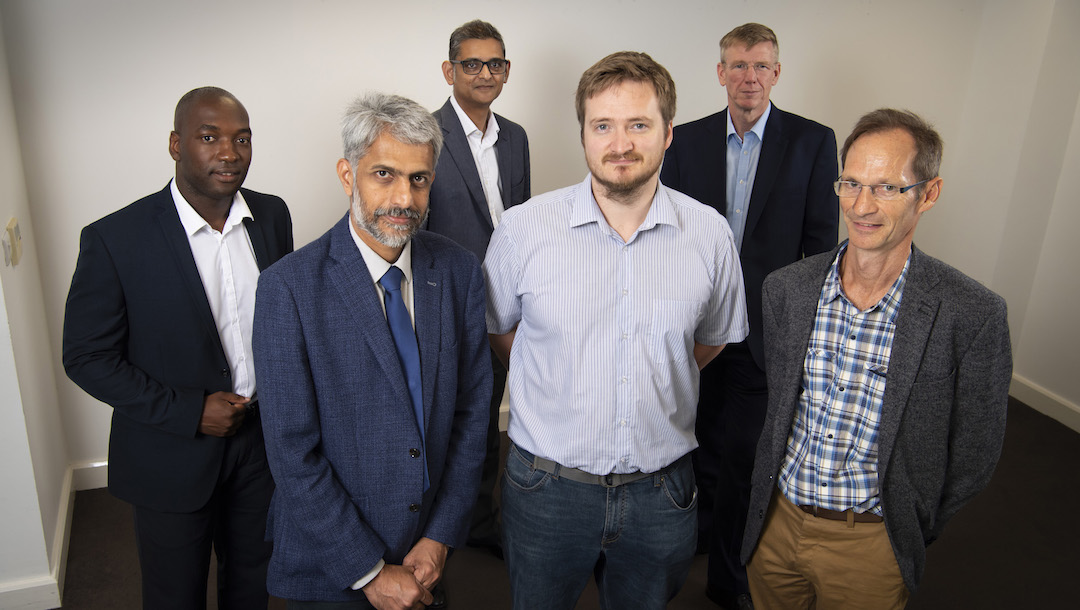A University of Leeds spin-out which is pioneering a new way to make toughened glass for mobile phone screens and wearable devices has secured £600,000 to prove the benefits of its technology.
Optimus Vitrum has received backing from NPIF – Mercia Equity Finance, which is managed by Mercia and is part of the Northern Powerhouse Investment Fund as well as the university and a private investor.
The company believes its technology could help resolve a key challenge facing the global mobile industry – how to create thinner, more flexible screens for smartphones and other electronic devices without making them more vulnerable to cracking.
Optimus Vitrum’s process, which is based on research by materials specialist Professor Gin Jose, from the School of Chemical and Process Engineering, uses lasers instead of chemicals to treat the glass, resulting in more uniform toughening and better performance. The investment will allow the company to create advanced prototypes and engage customers.
Professor Jose spent seven years developing the technology, attracting over £5m in government grants. He has now joined forces with his former University PhD students Dr Matthew Murray and Dr Robert Mathieson and glass industry expert Dr Malcolm Glendening to set up Optimus Vitrum. The company, which has recently moved into new premises in Leeds, has also appointed entrepreneur Chris Brill as chair.
The global market for mobile phone and tablet screens is estimated at $2.1bn and expected to reach $2.5bn by 2025. However cracking appears to be a common problem even at current glass thicknesses – one survey found that almost one in four UK mobile users had had a cracked screen in the last two years.
Professor Gin Jose, Director at Optimus Vitrum, said: “Our process has the potential to disrupt the glass market, in particular the way glass is toughened – a process that has remained largely unchanged for decades. The practical benefit is that industry will be able to make glass that is thinner and stronger and also more resistant to scratches.”
Ken Cooper, Managing Director at British Business Bank, said: “This is a great example of how NPIF funding can support innovative businesses in the North of England. The success of companies like Optimus Vitrum will provide the fuel for the Northern Powerhouse and help to redress the current imbalances in the UK’s economy.”
Arshad Mairaj, Head of Commercialisation at the University of Leeds, said: “The University of Leeds has a strong track record of turning its research into commercial ventures. That holds true for Optimus Vitrum which has the potential to transform an important industrial process and bring significant impact to businesses and the public.”
Maurice Disasi, Investment Associate with Mercia said: “Optimus Vitrum’s technology addresses a key challenge for manufacturers and could have a huge potential market, not only in mobile phones but also for uses such as vehicle windscreens. This investment will fund independent tests and provide the proof the company needs to approach customers worldwide.”
The Northern Powerhouse Investment Fund project is supported financially by the European Union using funding from the European Regional Development Fund (ERDF) as part of the European Structural and Investment Funds Growth Programme 2014-2020 and the European Investment Bank.
